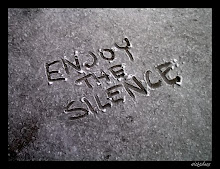Facebook now has become new keyword in our Internet social networking. Recently some woman students from several traditional Islamic boarding schools (pondok pesantren) gathered to talk about Facebook—more precisely about its permissibility according to Islamic law, that is, past scholar opinions written in books known as kitab kuning (literally means yellow book, referring to paper usually used in printing those books). This gathering, which in Muslims’ traditional circle is known as bahth al-masa’il (literally investigating problems), has been a long handed-down tradition for generations to answer questions and solve problems asked to authority in traditional society in Indonesia.
Generally, there are some kinds of this meeting called bahth al-masa’il, such as its official form held by Nahdlatul Ulama. But, when done by students of pesantren, it is usually aimed primarily at improving their debate and problem-solving capabilities in order for them, when going home, to have such competences, rather than to officially state legal opinion (fatwa). It is a habit in it to have problems usually gathered from several pesantrens joining it. Questions raised in it reflect contemporary—usually popular—problems, which may be understood as everything which legal status is unknown before.
It is, then, not surprising at all that Facebook, seen as massive social phenomenon, draws attention to be discussed. As predicted, the conclusion of this assembly is that if Facebook is used in accordance with, or not violating, religious norms, then it should be legally allowed or even recommended in some cases, and if it is misused, e.g. used for pornography, it is forbidden.
Then, what is prohibited is not Facebook as is, rather its abuse. It is a fatwa based on maslahah (commonly rendered as public interest). Nothing is special in such legal opinion, moreover if we notice that many, if not most, problems, which has no clear prescription from Quran verses and Prophetic Traditions, has more often than not been dealt in terms of whether or not it has maslahah. Everybody who is familiar with that institution will admit this.
What is unusual, for me and perhaps for some other people acquainted with pesantren, is media attention. Mass medias seem to have blown up this topic over its proportion by exploitation—sounding a bit offensive ☺. This results in misunderstanding for, at least, two sides. First are those who strictly adhere to traditional authority, although it might be minority in comparison to other side. Second are people who see that pesantren has no longer ability to appropriately respond to contemporary issues.
Here I would like to provide you some links that may clarify this problem.
To make clear this read: http://www.facebook.com/inbox/readmessage.php?t=1072848385924&mbox_pos=0
Here you find the complete result of bahth al-masa’il held by FMP3 which legal opinion concerning Facebook is only one topic, among many, discussed.
http://www.4shared.com/file/107226033/a67e2513/Hasil_Bahtsul_Masail_FMP3_Jatim_Mei_2009.html
Thursday, 28 May 2009
Debating Facebook: Facebook Viewed Traditionally
Posted by
Imdad Robbani
at
14:36
253
comments
![]()
Labels: culture, fatwa, Islamic law, legal opinion, Opinion, pesantren
Subscribe to:
Comments (Atom)







